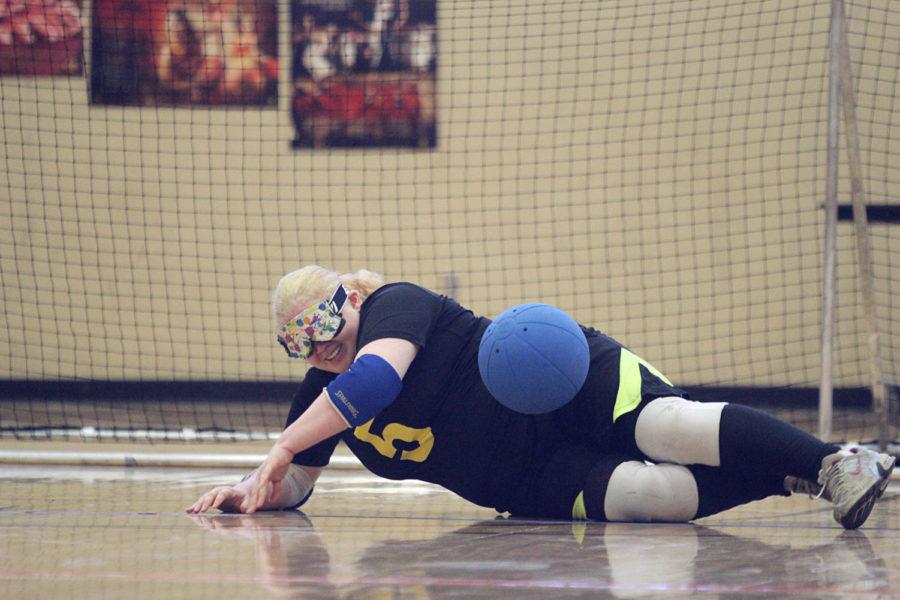Goalball nationals ring in Ames: Visually-impaired athletes gather for unique sport
June 25, 2014
Imagine being blindfolded in front of a hollow medicine ball thrown at 35 miles per hour. This is the day-to-day life for those who play goalball.
Goalball, a sport for the visually impaired, started after World War II to keep visually impaired veterans active. The sport has blossomed into a premiere sport for the visually impaired.
Goalball consists of two teams of three facing each other on a court that is nine meters wide and 18 meters long. One player fill the center position and defends the middle of the goal while the other two play the wings and guard the side of the goals.
The goal of the game is to roll a hollow, basketball-sized medicine ball with bells in it into the opposing team’s goal, which runs the width of the court. The team that is able to stop the ball then becomes the offensive team. When a team scores, it is given a point and the ball goes to the team that did not get the point.
The 2014 goalball national tournament took place this past weekend at Ames Middle School. The tournament featured the best teams around the nation, from the New York Knights to the Portland Avalanche.
The event featured both men’s and women’s teams.
Some people do not know what to expect when walking into a gym with blind athletes but soon realize the endurance and stamina the sport requires. The athletes playing have bruises and sometimes are hit in the chest by the ball. They dive all over the floor to make sure the ball does not go into the goal.
The athletes are normally lying on the ground, though some stand in a squatting position. This is a reason that many goalball teams have weight training regiments.
Portland Avalanche center John Hinman lost his eyesight in a car accident when he was 8 years old. Hinman said he loved to skate as a kid and he felt very dejected knowing he couldn’t skate anymore.
When Hinman started goalball, he wasn’t sure what to think.
“I was surprised I liked goalball because I never liked team sports,” Hinman said.
Goalball has opened many doors for Hinman, allowing him to meet his teammates. He’s even been a part of the runner-up team at the junior world championships.
Hinman said the team does not have a coach. The team instead has what they call the “Temple of Knowledge” where every player pours in their knowledge and uses it to their strategic advantage on the court. The temple has years of experience all molded into a single unit, with the sole goal of winning the championship.
This is not the same for every team, of course, but many teams have veteran players who pool their knowledge to help the younger players.
When all was said and done, the California Cyclones took the gold on the men’s side of the bracket, and Pool Team Central took the gold on the women’s side. Hinman’s Portland Avalanche did not place.
“The event went fantastic with a lot of positive feedback from the teams and everything went very well,” said public relations and events coordinator Lacey Markle. Markle also said that next year’s nationals will be in Atlanta, Ga.
The athletes who play goalball have the biggest grin from cheek to cheek when the game is all said and done. Goalball — like so many other sports — has the uncanny ability to bring people together who might have otherwise trekked down a different path.







